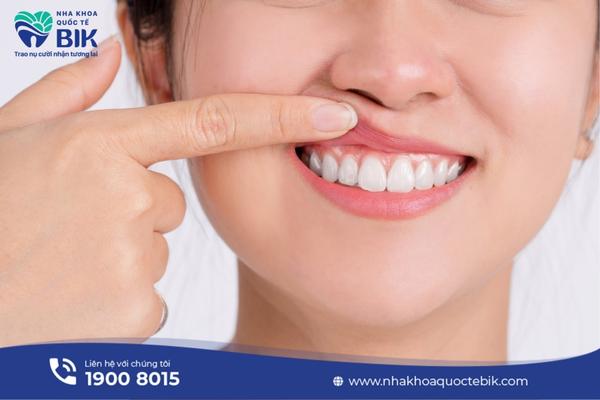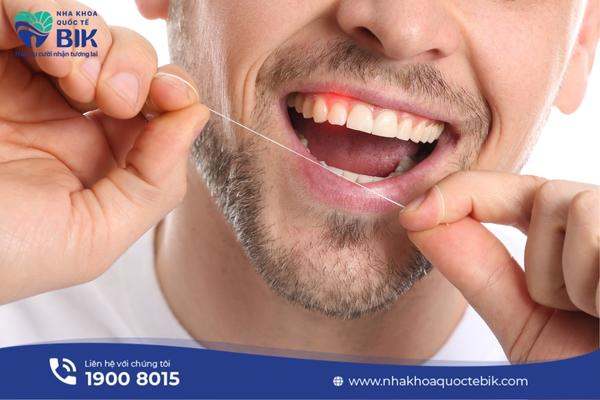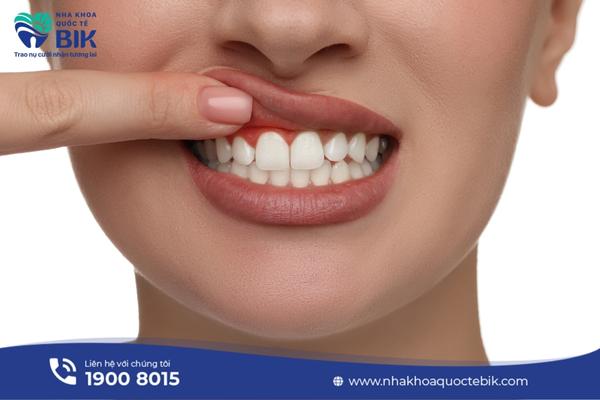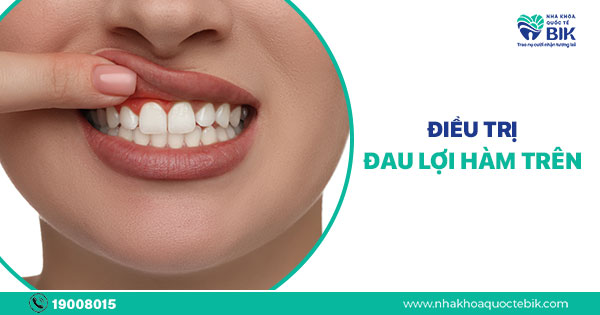
Upper jaw gum pain can be caused by infection or this is one of the signs of other oral diseases. If the pain persists and causes discomfort, you can apply some simple pain relief methods at home, but you still need to go to the dentist for advice and to completely overcome this condition.
1. Causes of upper jaw gum pain
Upper jaw gum pain is often caused by the following reasons:
1.1. Gum damage
Gum damage can be caused by too strong an impact of a hard-bristled toothbrush for a long time or by improper brushing. At this time, bacteria can easily penetrate and attack, causing swelling of the gums, making the pain last longer.
1.2. Gingivitis
Gingivitis occurs when the oral cavity is attacked by harmful bacteria, causing damage to the gum tissue. Not only causing pain, gingivitis also causes swollen gums, bleeding and tooth sensitivity. If left untreated for a long time, it will lead to periodontal disease, causing symptoms of pain, prolonged bleeding and, worst of all, can cause damage to the tooth pulp.
1.3. Pain in the upper jaw gums due to wisdom teeth eruption
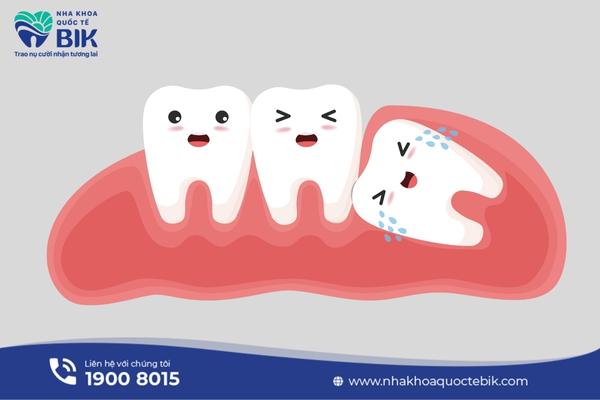
Depending on the tendency of wisdom teeth to grow straight, grow crooked or grow hidden in the upper or lower jaw, there will be different feelings of pain. Normally, the pain caused by wisdom teeth eruption appears in the innermost gums and the pain is more or less depending on each person’s constitution.
1.4. Tartar
If the mouth is not cleaned properly every day, plaque will gradually accumulate at the base of the teeth. These plaques that remain in the oral cavity for a long time will calcify into tartar
1.5. Pregnancy

Changes in hormone levels during pregnancy can increase blood flow to the gums, causing inflammation and pain in the upper jaw.
1.6. Infected gums
Some infectious diseases such as oral herpes, oral thrush, thrush or tooth abscess can also cause pain in the upper jaw gums.
2. Effects of upper jaw pain
Upper jaw pain can cause the following effects:
2.1. Effects on the chewing process
When the gums are painful, the patient will not be able to bite and chew food as effectively as usual. Therefore, if this condition persists, it will cause the chewing function to decline, the body will lack nutrients, and will not have enough resistance to fight other diseases.
2.2. Difficulty in oral hygiene
The pain and discomfort will make oral hygiene much more difficult. If the painful gum area is not cleaned thoroughly, bacteria will accumulate, making the gums, tongue and oral cavity easily attacked and infected. In addition, some types of bacteria are also the cause of bad breath, hindering daily communication.
3. How to relieve upper jaw pain at home
You can relieve pain at home with the following simple methods:
3.1. Use salt water
Salt has long been known for its high antibacterial properties, so salt is an effective pain relief solution. Just dissolve a sufficient amount of salt in a cup of warm water, rinse your mouth with this mixture for about 30 seconds, then spit it out to help reduce swelling and pain in the gums.
3.2. Use aloe vera

You can use aloe vera gel to apply directly to the swollen gums to improve the pain symptoms because this food has quite high antiseptic and antibacterial properties.
3.3. Use tea grounds
Green tea contains Tannin which helps reduce swelling and pain, prevents infection very effectively. You can use tea grounds to apply directly to the painful gums, keep for about 10 minutes and then rinse your mouth with clean water. Should be done 3-4 times/week for best results.
3.4. Use honey

Honey is a natural ingredient containing active ingredients that have the ability to fight oxidation, relieve pain and support the healing of damaged mucous membranes. To relieve pain with honey, apply this ingredient to the swollen gums, after about 15 minutes, rinse your mouth with clean water. Do this 2-3 times/week and you will see a significant reduction in pain.
4. Treatment of upper jaw gum pain at the dentist
If you want to completely treat upper jaw gum pain, you still need to go to the dentist. Depending on each oral condition, the doctor will prescribe one of the following solutions:
4.1. Scaling
Scaling will help remove plaque that accumulates bacteria that can attack the gum area. Thereby preventing prolonged pain due to severe damage to the gum area. Even if there is no gum pain, customers should still have their teeth scaled at the dentist every 6 months to prevent some oral diseases.
4.2. Wisdom tooth extraction
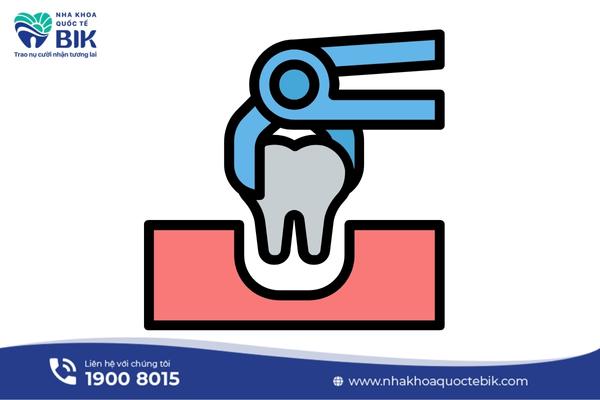
If the upper jaw gum pain is caused by wisdom teeth, the doctor will prescribe treatment for the inflammation and extraction of impacted or impacted wisdom teeth. Wisdom teeth often grow quite complicatedly, so tooth extraction also requires a lot of techniques, expertise and many years of experience from the doctor. Therefore, to ensure maximum safety when performing this method, it is necessary to choose a reputable dental address.
4.3. Treatment of upper jaw gingivitis at the dentist
In the case of upper jaw gingivitis due to infection, the doctor will prescribe some pain relievers, anti-inflammatory drugs and antibiotics to kill the bacteria that cause the disease. If periodontitis or tooth abscess has progressed to a purulent form, other dental procedures such as cleaning the abscess, grafting gum flaps, jaw bone grafting, etc. will have to be performed.
Therefore, upper jaw gingivitis is caused by many reasons, making it difficult for the patient to perform daily activities. However, some simple ways can be applied to effectively relieve pain at home and then go to a reputable dental facility to completely treat this condition.

